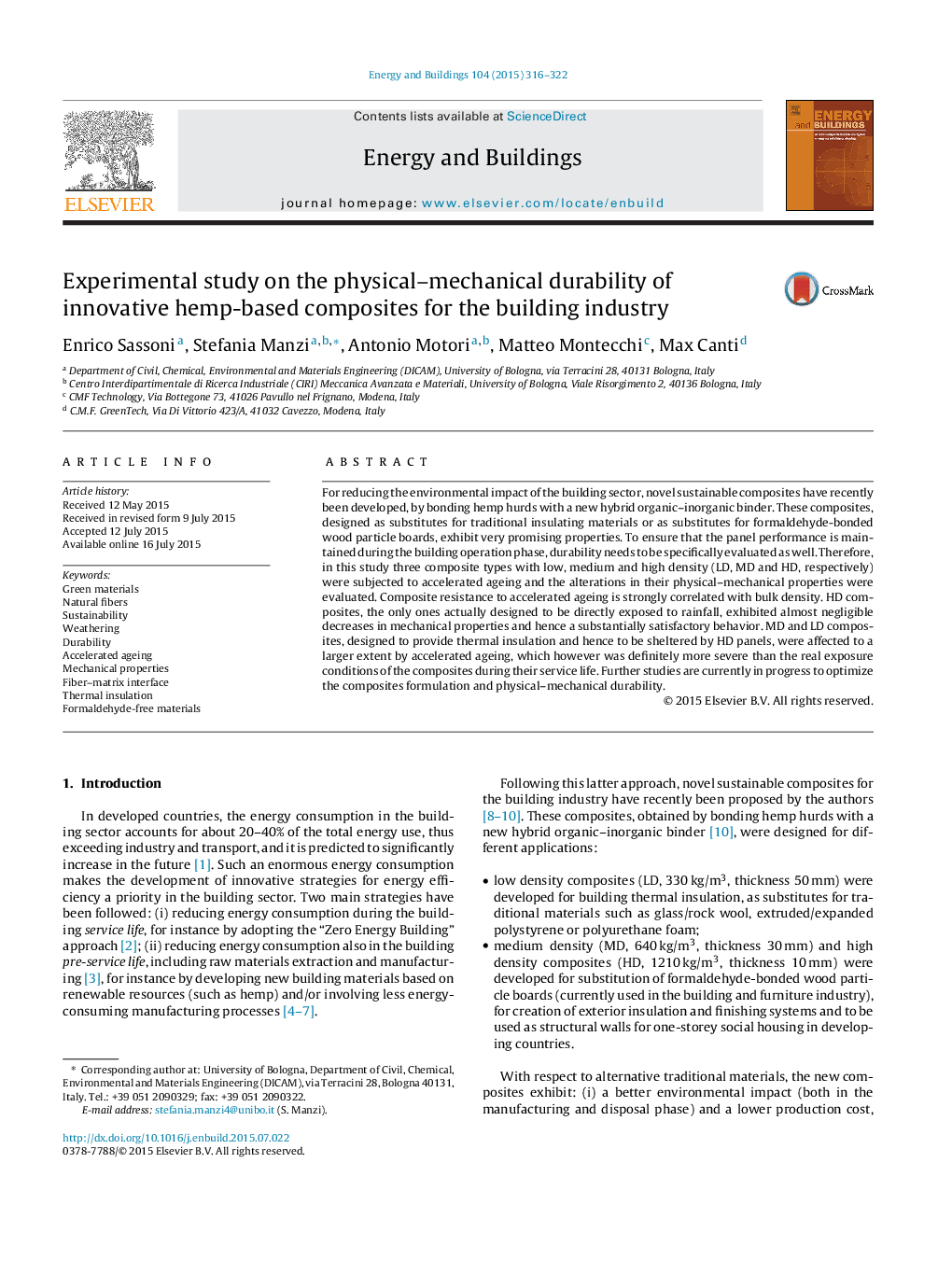| Article ID | Journal | Published Year | Pages | File Type |
|---|---|---|---|---|
| 262431 | Energy and Buildings | 2015 | 7 Pages |
•Novel hemp-based composites with promising properties have recently been proposed.•Their physical–mechanical durability after accelerated ageing was here evaluated.•Accelerated ageing consisted in cycles of immersion in water, freezing and thawing.•Composite resistance to accelerated ageing is strongly correlated with bulk density.
For reducing the environmental impact of the building sector, novel sustainable composites have recently been developed, by bonding hemp hurds with a new hybrid organic–inorganic binder. These composites, designed as substitutes for traditional insulating materials or as substitutes for formaldehyde-bonded wood particle boards, exhibit very promising properties. To ensure that the panel performance is maintained during the building operation phase, durability needs to be specifically evaluated as well. Therefore, in this study three composite types with low, medium and high density (LD, MD and HD, respectively) were subjected to accelerated ageing and the alterations in their physical–mechanical properties were evaluated. Composite resistance to accelerated ageing is strongly correlated with bulk density. HD composites, the only ones actually designed to be directly exposed to rainfall, exhibited almost negligible decreases in mechanical properties and hence a substantially satisfactory behavior. MD and LD composites, designed to provide thermal insulation and hence to be sheltered by HD panels, were affected to a larger extent by accelerated ageing, which however was definitely more severe than the real exposure conditions of the composites during their service life. Further studies are currently in progress to optimize the composites formulation and physical–mechanical durability.
